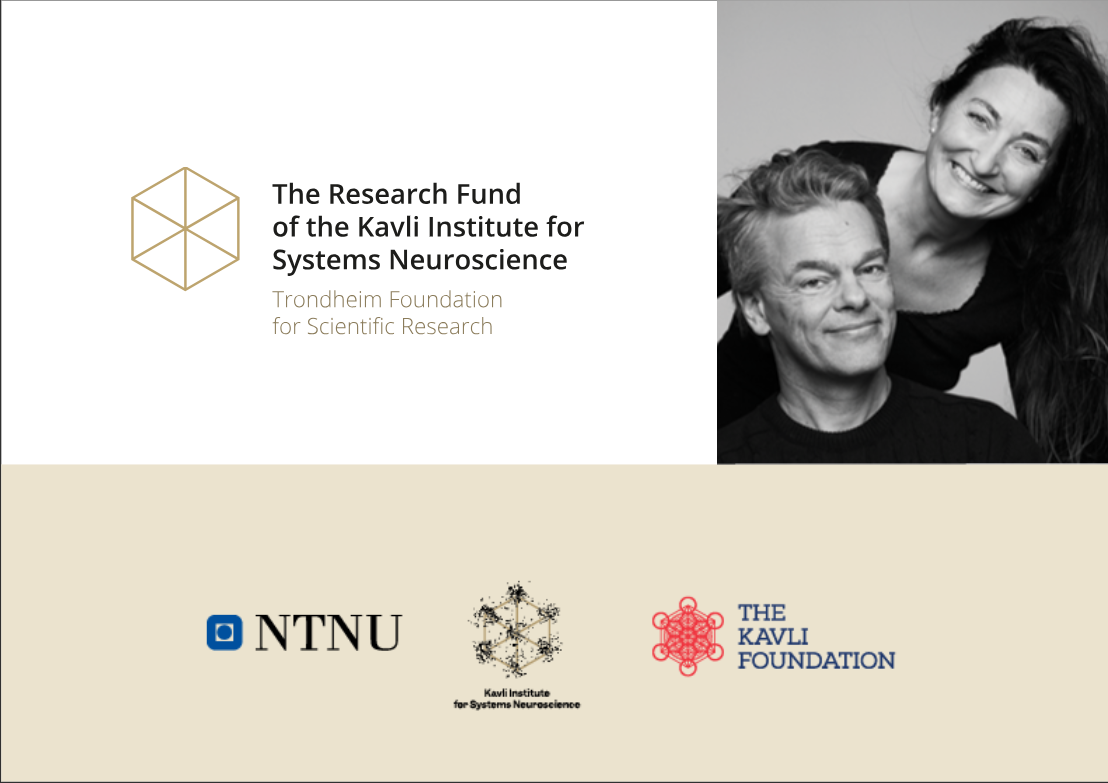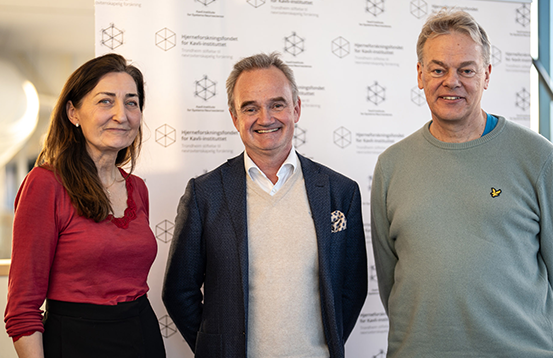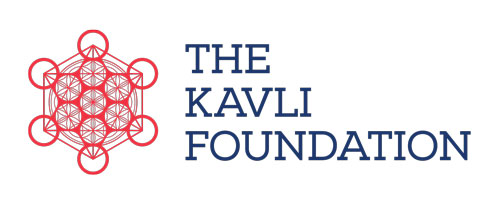The Research Fund of the Kavli Institute for Systems Neuroscience

The Research Fund and the Kavli Institute
The Research Fund of the Kavli Institute has the sole purpose of providing direct financial support for brain research at the institute led by May-Britt Moser and Edvard Moser.
In 2024, it will be ten years since Edvard Moser and May-Britt Moser received the Nobel Prize. Perhaps we can contribute to solving medical puzzles behind for example dementia?
Brochure: The Research Fund of the Kavli Institute
About the Research Fund
The Research Fund of the Kavli Institute is formally organized as a foundation: Trondheim Foundation for Scientific Research (TFSR) and was established by Fred Kavli in 2008 when May-Britt Moser and Edvard Moser's Center for the Biology of Memory was adopted a Kavli Institute in 2007: The Kavli Institute for Systems Neuroscience.
The Research Fund has until 2024 supported the brain research at NTNU with NOK 69 millions.
The Research Fund's mission is to provide for good management of the funds and annually pay "an amount equivalent of not less than 3 percent nor more than 5 percent of the net fair market value of the foundations capital as set forth in the foundation's official accounts for the previous year to NTNU for promotion of The Kavli Institute for Systems Neuroscience at NTNU". (Article 7 of Articles of Incorporation)
The endowment of the Research Fund has risen steadily since its establishment, and was by July 2024 NOK 322,2 millions.
The Research Fund receives gifts from individuals, companies, foundations and voluntary organizations. The Kavli Foundation has made large contributions over several years. The Board of the Research Fund has launched the project Fundraising 2025-30 with the goal of increasing the endowment to NOK one billion by the end of 2030.
The Research Fund has long-term investment strategy with moderate risk exposure. The portfolio consists of international equities (70 %) and bonds (30%) invested in funds close to index. The manager reports monthly to the Board on the development of the portfolio. The annualized return on the endowment for the years 2014-23 is 9.2 per cent.
Articles of Incorporation for (The Research Fund of the Kavli Institute for Systems Neuroscience) The Trondheim Foundation for Scientific Research
(Approved 4 July 2008. Revision of Article 7 approved by the Norwegian Gaming and Foundation Authority 6 June 2017)
Article 1: Name
The Trondheim Foundation for Scientific Research (hereinafter named the TFSR or the foundation).The Research Fund of the Kavli Institute for Systems Neuroscience is the name that the foundation uses in daily dialogue.
Article 2: Purpose
The specific and primary purpose of the TFSR is to support, benefit and carry out the charitable, scientific and educational purposes of the Norwegian University of Science and Technology (hereinafter named NTNU) by providing financial support for the Kavli Institute for Systems Neuroscience at NTNU. TFSR is an autonomous non-profit foundation.
Article 3: Foundation Capital
The initial capital stock of the TFSR is NOK 100.000.
The Board of the TFSR is empowered to increase the foundations's initial capital stock.
Article 4: Board of Directors
The TFSR is to have a Board of Directors with five members. Two members are to be proposed by the Kavli Foundation and three members are to be proposed by NTNU.
Members of the Board are appointed for a period of four years where one of the members is selected initially for a two-year term.
The Board of Directors is formally appointed by the Rector of NTNU. The Board elects one of its members as a Chairman of the Board.
The following persons, in any combination, may not comprise a majority of the Board: (1) an individual that is a substantial contributor to the foundation; (2) if a substantial contributor is an entity, an individual that owns more than 20% of the substantial contributor, (3) the family (spouses, ancestors, children, grandchildren, great-grandchildren and spouses of children, grandchildren, and great-grandchildren) of any individuals described in (1) og (2); and (4) an individual who is employed by any person or entity described in (1), (2), or (3).
None of the persons listed in (1)-(3), and no entity in which such persons may own more than 35%, whether alone or in combination, shall have the power to veto any action to be taken by this foundation.
The firm of auditors to audit the TFSR accounts is to be selected by the Rector of NTNU:
Article 5: Powers of the Board
The Board of Directors is the TFSR's controlling body.
The Board of Directors has the power to make distributions from the foundation within the stipulated framework of how much of the foundation's divided income and/or equity capital can be used for distribution. Each such distribution is to be in accordance with the Purpose of the foundation and its Articles of Incorporation.
The Board has the responsibility for the administration of the foundation.
The Board is to ensure that the accounts and management of the capital in the foundation are subject to adequate control routines.
Article 6: Gift Acceptance Policy
This foundation shall not have the power to accept any gift or contribution from any person who directly or indirectly controls the governing body of NTNU, any family (including siblings and their spouses) of such person, and any business entity or trust in which such persons own more than 35%.
Article 7: Distributions
For any given year, the foundation shall distribute to NTNU, for the benefit of the Kavli Institute for Systems Neuroscience at NTNU, an amount equivalent of not less than 3 percent nor more than to 5 percent of the net fair market value of the foundations total capital as set forth in the foundation's official accounts for the previous year.
Article 8: Political Activity
The foundation shall not participate in, or intervene in, any campaign on behalf of or in opposition to any candidate for public office. No substantial part of the activities of the foundation shall consist of attempting to influence legislation.
Article 9: Dissolution
Dissolution of this foundation requires a 4/5 majority of the Board. Should this take place, any remaining funds shall beawarded to another non-profit or governmental institute for neuroscience or other scientific research with the name "The Kavli Institute", designated by the Board. In no event may the foundation's capital be returned to the founder.
Article 10: Amendments to the Articles of Incorporation
These articles are available in both Norwegian and English. In the case of any discrepancies, the Norwegian text shall apply: Hjerneforskningsfondet for Kavli-instituttet - NTNU
Any amendments or changes in the Articles of Incorporation of the foundation are to be subject to the agreement of the Rector of NTNU.

Jan Morten Dyrstad (Chairman of the Board) is educated as economist and affiliated with Department of Economics at NTNU. He has experience from several management tasks, boards, councils and committees at NTNU and elsewhere in the university sector. At NTNU, he has, inter alia, been Head of department (1994-1998) and Dean (199-2013).
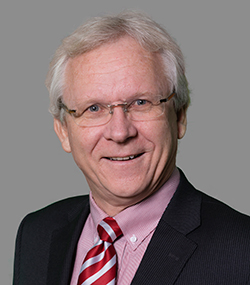
Rune Haglund is a lawyer and partner in the law firm Arntzen de Beshce AS, affiliated with the business area Banking, Finance and Insolvency. He holds several board positions in various companies and foundations, including being a member of the Board of Stiftelsesforeningen.

Gunnar K. Nilsen is a member of the Board of Kavli Foundation and an advisor for start-up companies specializing in sensor technology. He has experience both from Norway and the USA on investment activities, technology development and entrepreneurship. He holds a Master of Science degree in Electrical Engineering from NTNU and MBA from Pepperdine University.
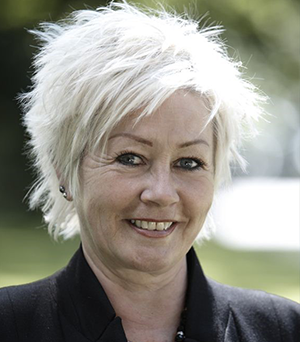
Anne Lise Ryel is a lawyer. She was general secretary of the Norwegian Cancer Society for 18 years, Norway's Gender Equality and Anti-Discripmination Ombud (1994-2000) and State Secretary of the Ministry of Justice (2000-02), and has extensive experience from board positions nationally and globally.

Birgit Skarstein is known for several impressive international championship titles as a Paralympic athlete in rowing and cross-country skiing. She has broad communicty experience, including member Oslo City Council, The Norwegian Biotechnology Advisory Board and the Board of Sparebankstiftelsen DNB. Birgit is ediucated in political science at the University of Oslo.
Photos: Thor Nielsen and Elin Iversen
Current affairs
History: Fred Kavli and the Kavli Foundation
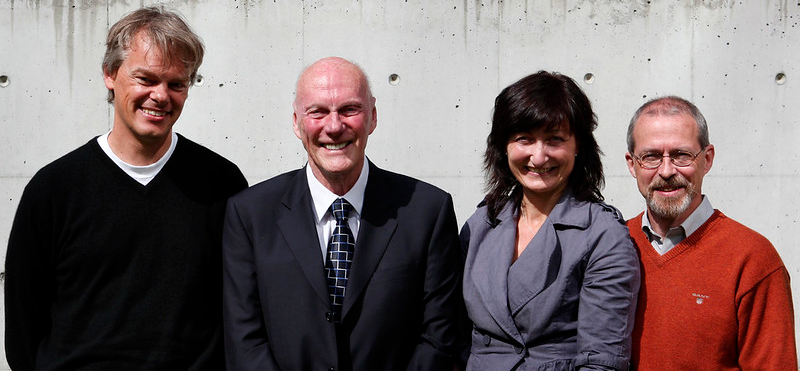
Fred Kavli from Eresfjord in Romsdal was a civil engineer, entrepreneur, and a man with big dreams and a big heart. His contribution to research through The Kavli Foundation is extensive and very important. Not only as financial support, but also through his vision of supporting long-term research. He chose three scientific focus areas; the largest (astrophysics), the smallest (nanoscience) and the most complicated (brain research).
Fred Kavli was born in 1927, but moved to Trondheim to study at the Norwegian Institute of Technology (NTH). Immediately after his civil engineering degree in 1956, he traveled to Canada and then to the United States in 1958 to establish Kavlico Corporation, one of the world's largest suppliers of sensor technology for the automotive and aerospace industry. Kavli was also a member of the U.S. President's Council of Advisors on Science and Technology. When Fred Kavli sold Kavlico Corporation in 2000, he chose to invest in what he believed in. He was keen to contribute to the long-term development of basic knowledge, to make the world a better place to live. In 2000, The Kavli Foundation was founded with the purpose of supporting highly advanced research in astrophysics, theoretical physics, nanoscience and neuroscience.
The Kavli Foundation has an extensive business and the most important is the support of the 20 Kavli Institutes established in three continents at some of the world's best universities. There are a total of seven Kavli institutes in neuroscience, the Kavli Institute for Systems Neuroscience at NTNU in Trondheim, and six other at universities in the United States. In Europe there are four Kavli institutes in total.
SUPPORT THE BRAIN RESEARCH
Donate by Vipps
Hjerneforskningsfondet Vipps: 696680 (UNIFOR):

Donate by bank
The foundation’s bank account:
4202 17 13168
ED certificate
The Research Fund of the Kavli Institute for Systems Neuroscience is certified as equivalent to a U.S. public charity. An ED certificate for TFSR is available from NGOsource.
Financial statements and reports
Secretariat and audit
UNIFOR is a non-profit foundation which also performs administrative functions for foundations supporting research and higher education.
Since the summer 2016, UNIFOR has been a secretariat for TFSR, which among other tasks includes accounting, archive function, contact with public authorities and the Norwegian Gaming and Foundation Authority.
Through UNIFOR, TFSR is a member of "Stiftelsesforeningen" and the Norwegian Forum for Responsible and Sustainable Investment.
The audit company BDO examine TFSR's accounts.
Follow us on social media
- The Research Fund on LinkedIn
- The Research Fund on LinkedIn

